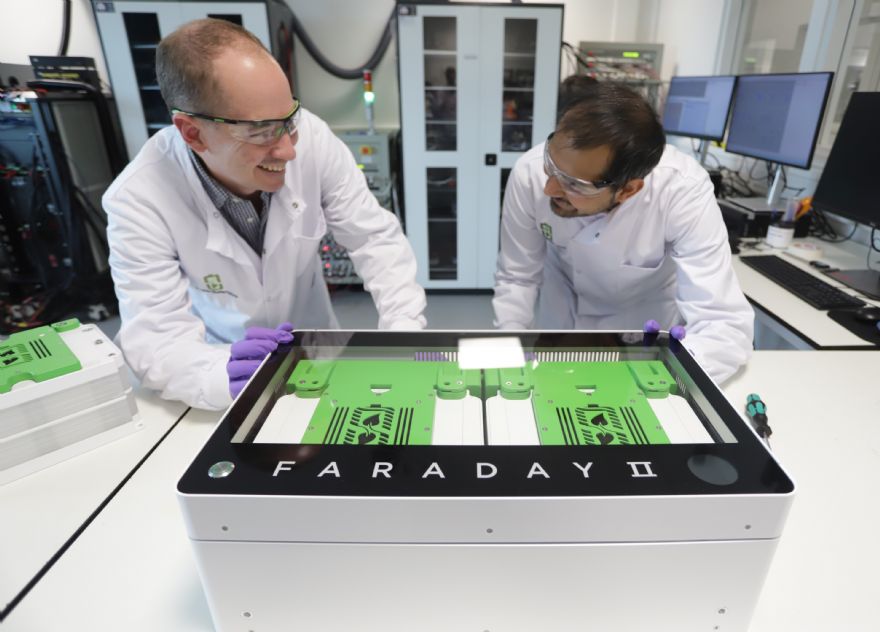
Cambridge-based
Superdielectrics, an energy storage technology company, has announced the launch of Faraday 2, the company’s next-generation aqueous polymer battery, with which it aims to ‘revolutionise energy storage’ with a safer, more sustainable, and cost-effective alternative to traditional lithium-ion batteries. The Faraday 2 builds on the success of the Faraday 1 prototype and is seen as a major step towards offering a residential energy storage unit the size of a fridge ‘that could reduce household electricity bills by 85% or more’.
Developed from advances in contact lens polymers, Superdielectrics’ internationally patented technology uses abundant, non-toxic materials and contains no critical or rare earth metals; and with a full charge time of just 30min, which is significantly faster than a traditional battery, the Faraday 2 is designed to store surplus renewable energy efficiently, take advantage of flexible tariffs, and provide greater energy independence for homes. Moreover, Faraday 2 aims to address the increasing need for scalable energy storage throughout Europe’s rapidly expanding renewable energy sector.
Jim Heathcote, Superdielectrics’ CEO, said: “The launch of Faraday 2 is a major step towards a low-cost and clean-energy future, as well as a key milestone for us as we work towards a commercial product. As the world shifts towards renewable energy, storage is the technological bottleneck. Our technology is low-cost, safe and recyclable, helping the world in the global transition to sustainable energy.”
Earlier this year, Superdielectrics announced a wide-ranging collaboration agreement with E.ON, one of the UK’s leading energy providers, that is focused on accelerating the development and deployment of Superdielectrics’ battery solution, with the next step being the creation of larger prototypes that can be trialled in customers’ homes.
Julian Lennertz, chief commercial officer at E.ON Next (a subsidiary of E.ON that focuses on renewables), said: “The transition to cleaner energy is about making that energy more affordable and sustainable, and our partnership with Superdielectrics is one of a huge number of ways we are working to help customers take control of their energy by making energy storage widely available. The launch of Faraday 2 is an important milestone in the evolution of battery design using readily available materials.”